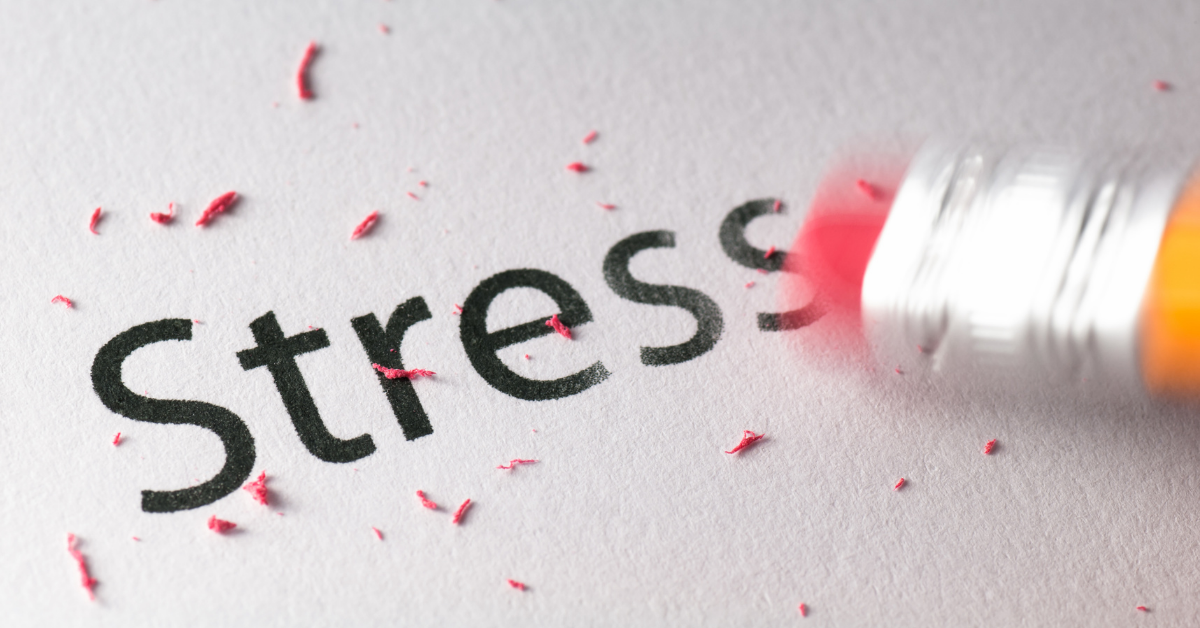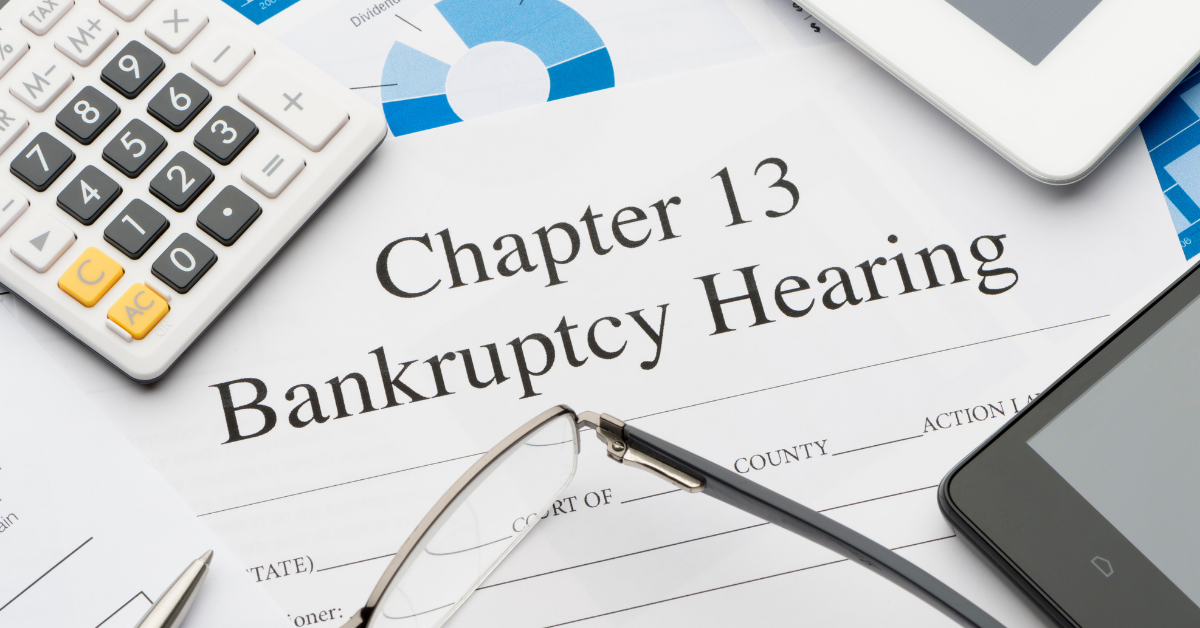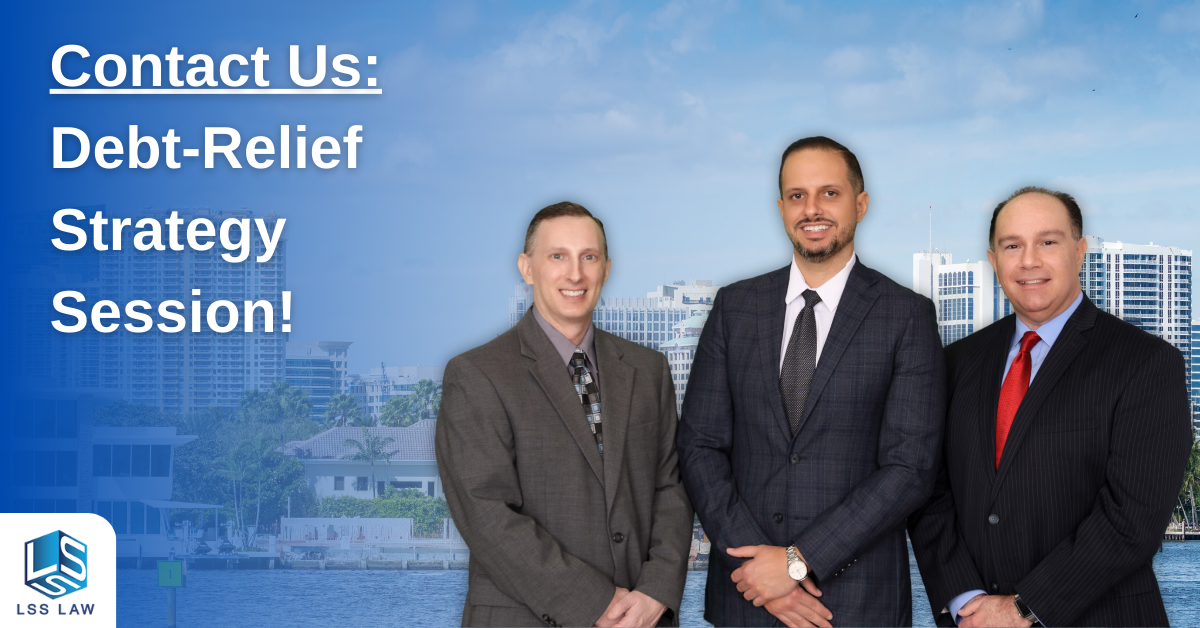Dealing with overwhelming debt can be a stressful and confusing time. You may feel like there’s no way out, but don’t worry – you’re not alone. Many people have faced similar situations and have found relief through bankruptcy. So, how do you file for bankruptcy? In this blog post, we’ll walk you through the process step by step, providing you with the knowledge and resources you need to make an informed decision about your financial future.
How Do You File Bankruptcy? Understanding the Basics
Bankruptcy is a legal tool designed to help individuals and businesses who are unable to repay their outstanding debts. The process involves a judge and a court-appointed trustee examining your assets and liabilities to determine if you qualify for debt relief. By filing bankruptcy, you can potentially eliminate some or all of your debts and start fresh on your path to financial stability.
Step 1: Determine if Bankruptcy is the Right Option for You
Before diving into the bankruptcy filing process, it’s important to assess your financial situation and consider other debt-relief options. Bankruptcy should be viewed as a last resort, as it can have long-lasting effects on your credit report and financial life. You may want to explore alternatives such as debt settlement, credit counseling, or negotiating with your creditors to lower your monthly payments.
Step 2: Choose the Appropriate Type of Bankruptcy
There are two main types of personal bankruptcy: Chapter 7 and Chapter 13. Chapter 7 bankruptcy, also known as liquidation bankruptcy, involves selling your non-exempt assets to pay off your unsecured debts. This type of bankruptcy is typically best for those with limited income and assets.
On the other hand, Chapter 13 bankruptcy, also known as reorganization bankruptcy, allows you to create a repayment plan to pay back your debts over a three to five-year period. This option is more suitable for individuals with a steady income and secured debts, such as a mortgage or car loan.
Step 3: Complete the Mandatory Credit Counseling Course
Before you can file for bankruptcy, you must complete a credit counseling course through an approved credit counseling agency. This course will help you evaluate your financial situation, explore alternative debt relief options, and create a personal budget plan. Be sure to obtain a certificate of completion, as you’ll need to submit this to the bankruptcy court.
Step 4: Gather Your Financial Documents and Complete the Bankruptcy Forms
In order to file for bankruptcy, you’ll need to provide detailed information about your income, expenses, assets, and debts. Gather documents such as pay stubs, bank statements, tax returns, and loan agreements to help you complete the required bankruptcy forms. These forms will include a bankruptcy petition, schedules listing your assets and liabilities, and a statement of your financial affairs.
Step 5: File Your Bankruptcy Petition and Pay the Filing Fee
Once you’ve completed the bankruptcy forms, you’ll need to submit them to your local bankruptcy court along with the appropriate filing fee. The fees vary depending on the type of bankruptcy you’re filing – Chapter 7 filing fees are currently $338, while Chapter 13 filing fees are $313. In some cases, you may be eligible for a fee waiver or installment plan.
Step 6: Attend the Mandatory Creditors’ Meeting
After your bankruptcy petition is filed, you’ll be required to attend a meeting of creditors, also known as a 341 meeting. During this meeting, the bankruptcy trustee and any interested creditors will have the opportunity to ask you questions about your financial situation and the information provided in your bankruptcy forms. It’s essential to be honest and forthcoming during this meeting, as any discrepancies could jeopardize your bankruptcy case.
Step 7: Complete the Debtor Education Course
Before you can receive a bankruptcy discharge, you must complete a debtor education course through an approved provider. This course will teach you valuable financial management skills to help you avoid future financial problems. Like the credit counseling course, you’ll need to obtain a certificate of completion and submit it to the bankruptcy court.
Step 8: Await Your Bankruptcy Discharge
Once you’ve completed all of the required steps, you’ll need to wait for the bankruptcy court to issue your discharge. This typically occurs within a few months of filing your bankruptcy petition. The discharge will eliminate your legal obligation to repay the discharged debts, allowing you to move forward with a clean financial slate.
Filing bankruptcy can be a complex and time-consuming process, but it can also provide much-needed relief for those struggling with overwhelming debt. By following these steps and working with an experienced bankruptcy attorney, you can navigate the bankruptcy process and begin rebuilding your financial life. Remember, bankruptcy is not the end – it’s a fresh start on your journey to financial stability.
The Role of a Bankruptcy Attorney in the Filing Process

While it’s possible to file bankruptcy on your own, having an experienced bankruptcy attorney by your side can make the process smoother and more efficient. A bankruptcy lawyer can help you determine if bankruptcy is the right choice for your situation, advise you on which type of bankruptcy to file, and guide you through each step of the process. They can also help you navigate any challenges that may arise, such as creditor objections or issues with the bankruptcy trustee.
Protecting Your Assets and Exemptions
In a Chapter 7 bankruptcy, some of your assets may be sold to pay off your creditors. However, certain assets are considered exempt under bankruptcy law, meaning they cannot be taken and sold. A knowledgeable bankruptcy attorney can help you identify and protect your exempt assets, ensuring that you retain as much of your property as possible.
Navigating the Bankruptcy Court System
The bankruptcy court system can be complex and intimidating for those unfamiliar with it. A bankruptcy attorney can help you understand the rules and procedures of the court, ensuring that your case is handled properly and efficiently. This includes filing the necessary paperwork, meeting deadlines, and representing you at the creditors’ meeting and any other required court appearances.
Negotiating with Creditors
In some cases, it may be possible to negotiate with your creditors to reduce your outstanding debts or modify the terms of your repayment plan. A bankruptcy attorney can act as your advocate in these negotiations, working to secure more favorable terms on your behalf.
Common Bankruptcy Myths and Misconceptions

There are many myths and misconceptions surrounding bankruptcy that can cause unnecessary fear and hesitation for those considering it as a debt relief option. By debunking these myths, you can make a more informed decision about whether bankruptcy is the right choice for your financial situation.
Myth 1: You Will Lose Everything in Bankruptcy
While it’s true that some assets may be sold in a Chapter 7 bankruptcy to repay creditors, many of your belongings will likely be protected by exemptions under bankruptcy law. Additionally, in a Chapter 13 bankruptcy, you can keep your assets as long as you stick to the repayment plan approved by the court.
Myth 2: Bankruptcy Will Ruin Your Credit Forever
Although bankruptcy will have a negative impact on your credit score initially, it is not a permanent mark. By following responsible financial habits and rebuilding your credit after bankruptcy, your score can improve within a few years. In fact, many people find that their credit scores begin to recover sooner than they expected.
Myth 3: You Can’t Get Credit After Bankruptcy
While it may be more challenging to obtain credit immediately after filing for bankruptcy, it’s not impossible. Many lenders offer secured credit cards or loans designed specifically for individuals who have filed bankruptcy. As you rebuild your credit and demonstrate responsible financial behavior, you’ll likely find more credit opportunities available to you.
Tips for Successfully Navigating the Bankruptcy Process

Filing for bankruptcy can be a complex and overwhelming process, but with the right guidance and preparation, you can successfully navigate it and achieve the financial relief you need. Here are some tips to help you through the bankruptcy process:
Tip 1: Be Honest and Thorough in Your Financial Disclosures
When filing for bankruptcy, it’s crucial to provide accurate and complete information about your finances. This includes listing all of your assets, debts, income, and expenses on the required bankruptcy forms. Failure to disclose this information can result in delays, dismissal of your case, or even criminal penalties.
Tip 2: Stay Organized and Meet Deadlines
Throughout the bankruptcy process, you’ll need to keep track of various documents, forms, and deadlines. Staying organized and ensuring that you meet all required deadlines can help your case proceed smoothly and efficiently. Consider creating a filing system to keep track of your paperwork and set reminders for important dates.
Tip 3: Communicate with Your Bankruptcy Attorney
Maintaining open and honest communication with your bankruptcy attorney is essential for a successful case. Be sure to keep them informed of any changes in your financial situation and ask questions if you’re unsure about any aspect of the process. Your attorney is there to guide and support you, so don’t hesitate to reach out for assistance.
The Different Types of Debts in Bankruptcy

In bankruptcy, debts are generally classified into two categories: secured and unsecured. Understanding the difference between these types of debts can help you better navigate the bankruptcy process and determine how your debts will be treated.
Secured Debts
Secured debts are those that are backed by collateral, such as a mortgage or car loan. In a Chapter 7 bankruptcy, you may be required to surrender the collateral if you cannot continue making payments on the debt. In a Chapter 13 bankruptcy, you can keep the collateral as long as you continue making your monthly payments under the repayment plan.
Unsecured Debts
Unsecured debts are those that are not backed by collateral, such as credit card debt, medical bills, and personal loans. In a Chapter 7 bankruptcy, these debts are typically discharged, meaning you are no longer responsible for repaying them. In a Chapter 13 bankruptcy, you may be required to repay a portion of your unsecured debts through your repayment plan, but any remaining balance will be discharged at the end of the plan.
Credit Counseling in the Bankruptcy Process
Credit counseling plays a significant role in the bankruptcy process, as it helps individuals understand their financial situation and explore various debt relief options. Before you can file for bankruptcy, you must complete a credit counseling course from an approved credit counseling agency. This requirement ensures that you are aware of all your options and have thoroughly considered the consequences of filing for bankruptcy.
How Credit Counseling Works
During the credit counseling course, you will work with a certified counselor to review your financial situation, including your income, expenses, and debts. The counselor will help you create a budget and explore various debt relief options, such as debt consolidation, debt settlement, or bankruptcy. By the end of the course, you should have a better understanding of your financial situation and the best course of action for addressing your debt.
The Benefits of Credit Counseling
Credit counseling can provide you with valuable financial education and resources to help you manage your finances more effectively in the future. Some benefits of credit counseling include:
- Gaining a comprehensive understanding of your financial situation
- Exploring various debt relief options and their consequences
- Receiving personalized advice and guidance from a certified counselor
- Learning budgeting and money management skills to prevent future financial difficulties
Remember that completing a credit counseling course is a mandatory requirement before filing for bankruptcy, so it’s crucial to find an approved agency and complete the course in a timely manner.
Understanding Chapter 7 Bankruptcy: Liquidation and Discharge

Chapter 7 bankruptcy, also known as liquidation bankruptcy, is a common option for individuals struggling with unmanageable debt. This type of bankruptcy allows you to discharge most of your unsecured debts, providing a fresh start for your financial life. However, it’s important to understand the process and requirements involved in filing for Chapter 7 to determine if it’s the right option for you.
Eligibility for Chapter 7 Bankruptcy
To qualify for Chapter 7 bankruptcy, you must pass the means test, which compares your income to the median income in your state. If your income is below the median, you are likely eligible for Chapter 7. If your income is above the median, you may still qualify if you can demonstrate that you do not have enough disposable income to repay your debts through a Chapter 13 repayment plan.
The Chapter 7 Bankruptcy Process
The Chapter 7 bankruptcy process begins with filing a bankruptcy petition and required forms with the local bankruptcy court. You must also submit financial documents, such as pay stubs, bank statements, and tax returns, to provide a complete picture of your financial situation. After filing, an automatic stay goes into effect, temporarily halting collection efforts, foreclosures, and lawsuits.
A bankruptcy trustee will be appointed to administer your case, review your financial documents, and liquidate any non-exempt assets to repay your creditors. You will also be required to attend a creditors’ meeting, where the trustee and any interested creditors can ask questions about your financial situation.
Once the bankruptcy trustee has completed their review and liquidation, and you have completed the required debtor education course, you will receive a bankruptcy discharge. This discharge eliminates your legal obligation to repay most of your unsecured debts, such as credit card debt, medical bills, and personal loans.
What Chapter 7 Bankruptcy Does Not Discharge
It’s important to note that Chapter 7 bankruptcy does not discharge all types of debt. Some debts, such as student loan debt, child support, alimony, and certain tax debts, are generally not dischargeable. It’s essential to discuss your specific financial situation with a bankruptcy attorney to understand which debts can and cannot be discharged through Chapter 7.
Difference Between Chapter 7 and Chapter 13 Bankruptcy

While Chapter 7 bankruptcy focuses on discharging unsecured debts through liquidation, Chapter 13 bankruptcy, also known as reorganization bankruptcy, allows you to repay your debts through a court-approved repayment plan. Understanding the differences between these two types of bankruptcy can help you determine which option is best for your financial situation.
Chapter 13 Bankruptcy: Repayment and Retaining Assets
Chapter 13 bankruptcy is perfect for repaying a portion of debts over time. To qualify for Chapter 13, you must have a steady income and your secured and unsecured debts must be below certain limits set by the bankruptcy code.
In a Chapter 13 bankruptcy, you will work with your bankruptcy attorney to propose a repayment plan that lasts between three and five years. This plan outlines how you will repay your creditors, prioritizing secured debts (such as mortgage payments and car loans) and priority debts (such as unpaid taxes and child support). Unsecured debts, like credit card debt and personal loans, are typically paid last and may only receive a portion of what is owed.
One of the main benefits of Chapter 13 bankruptcy is that it allows you to retain your assets, such as your home and car, as long as you continue making your monthly payments under the repayment plan. This can be especially beneficial for individuals who have fallen behind on mortgage payments or car loans and want to avoid foreclosure or repossession.
Choosing the Right Bankruptcy Option for You
Deciding between Chapter 7 and Chapter 13 bankruptcy can be a difficult decision, as each option has its advantages and disadvantages. It’s essential to consult with an experienced bankruptcy attorney to discuss your specific financial situation and determine the best course of action for addressing your debts. By understanding your options and working with a knowledgeable attorney, you can take the necessary steps to regain control of your financial life and work towards a brighter future.
How Do You File Bankruptcy – Frequently Asked Questions
What is the difference between secured and unsecured debt?
Secured debt is backed by collateral, such as a mortgage on a house or a car loan. If you fail to make payments on secured debt, the creditor has the right to take back the collateral. Unsecured debt, on the other hand, is not backed by collateral. Examples of unsecured debt include credit card debt, medical bills, and personal loans. In a bankruptcy case, secured debts are generally given priority over unsecured debts.
How long does the bankruptcy process take?
The length of the bankruptcy process depends on the type of bankruptcy you file. For a Chapter 7 bankruptcy, the process typically takes between four to six months from the filing date to the discharge of debts. For a Chapter 13 bankruptcy, the repayment plan lasts between three and five years, after which any remaining dischargeable debts are eliminated.
Will I lose my home or car if I file for bankruptcy?
In a Chapter 7 bankruptcy, you may be able to keep your home and car if you can claim exemptions for these assets and continue making payments. In a Chapter 13 bankruptcy, you can generally keep your home and car as long as you continue making your monthly payments under the repayment plan.
Can I discharge student loan debt in bankruptcy?
Discharging student loan debt in bankruptcy is difficult but not impossible. To discharge student loan debt, you must prove that repaying the loans would cause an undue hardship. This typically requires demonstrating that you have made a good-faith effort to repay the loans, your financial situation is unlikely to improve, and you cannot maintain a minimal standard of living if forced to repay the loans.
How will filing for bankruptcy affect my credit?
Filing for bankruptcy will have a negative impact on your credit score initially. However, with responsible financial habits and time, you can rebuild your credit. Many individuals find that their credit scores improve within a few years of filing for bankruptcy, as long as they follow the necessary steps to rebuild their credit.
Can I file for bankruptcy without an attorney?
While it is possible to file for bankruptcy without an attorney, it is not recommended. The bankruptcy process is complex, and having an experienced bankruptcy attorney on your side can help ensure that you navigate the process correctly and achieve the best possible outcome for your financial situation.
Contact Us to Learn More About Filing for Bankruptcy

If you’re struggling with debt and considering filing for bankruptcy, our experienced bankruptcy attorneys at LSS Law are here to help. We offer a free consultation for personal bankruptcies (Chapters 7 and 13) to discuss your financial situation and determine the best course of action for you. You can reach us by phone at (954) 466-0541 or through our website at https://lss.law/contact-us/. Don’t let the stress of debt control your life – let us help you regain control and open the door to a brighter future.






